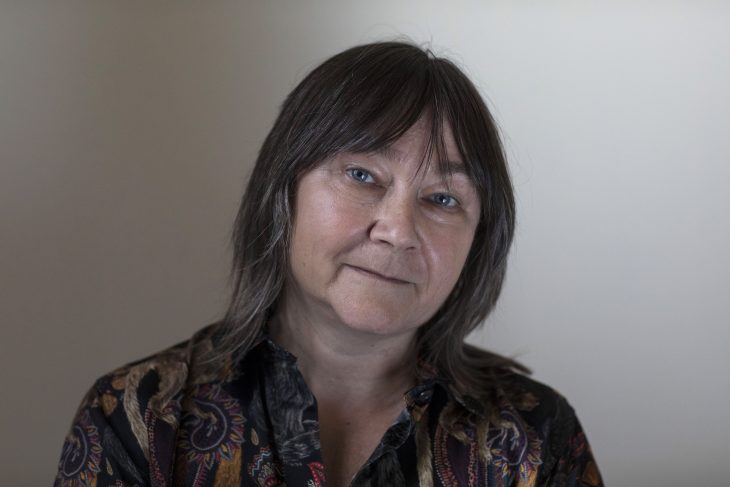In 1939, Barbara Hepworth gathered her children and her chisels and fled Hampstead for Cornwall. She expected war to challenge her passion for abstract form. But her commitment deepened. The solid ovoids she sculpted carried the weight of grief and the hope of eggs. To Hepworth, they became ‘forms to lie down in, or forms to climb through’. They were
a means of retaining freedom whilst carrying out what was demanded of me as a human being… a completely logical way of expressing the intrinsic ‘will to live’ as opposed to the extrinsic disaster of the world war.
References to Hepworth roll all the way through Ali Smith’s new novel, Winter, offering Hepworthian consolation to those struggling to process the shock of current world events, just as the lively brushwork of the pop artist Pauline Boty invigorated its Booker shortlisted predecessor, Autumn. The first in Smith’s promised quartet of seasonally themed, interlinked novels was widely hailed as the ‘the first great post-Brexit novel’. It was. But also, nothing like as boring or worthy as that sounded.
Autumn made a Hepworth sculpture of Brexit. Smith’s airy, modernist prose gave readers rare space to walk around the subject, lie down in it and climb through it. She gave room to the voices of the young and old: witty, serious, surprising, angry and surreal. She let the words of Shakespeare, Dickens and Hardy blow like fresh air through arguments that had staled and hardened against each other. She made you feel cleverer than all that. Made it obvious that history and identity run deeper and float freer than we think.
Autumn was only slightly marred by an excess of wordplay. The flurries of words disconnecting from their modern meanings and drifting down to their roots was often dazzling, but lines like ‘bagatelle it as it is’ may have cost Smith the Booker.
Winter cuts back on that sort of thing. It’s a slightly calmer, cooler read, but still a sparkler. It takes up the story of Sophia, an ex-lover of Autumn’s elderly hero Daniel Gluck. Sophia is a successful former
businesswoman, retired to Cornwall. She lives alone in the huge house where her hippy sister once dwelt in a fug of dope smoke and group think back in the 1980s when the place was a derelict commune.
When Sophia’s son, Art, comes to stay for Christmas (with a homeless Eastern European woman he has hired to pretend to be his girlfriend) he finds her catatonic at the kitchen table. Sophia has apparently lost her marbles, although she believes she’s actually found one. For Art’s mum believes herself to be in the company of a levitating stone sphere which has assumed the appearance of a child’s head and smells slightly fishy. (Even stone has a history — this one was shell, thousands of years ago.)
Weird? Yes. But Smith makes it her business to question what we allow to be weird. This is a world, she reminds us, in which a male member of parliament has just ‘woofed’ at a female MP; and which has elected a reality television star as leader of the free world. No wonder millennials such as Art — who writes a fake newsy blog — feel frozen in an apolitical paralysis, caught between the Brexiteer pragmatism of his mum (who’s gone mad?) and the impossible idealism of his aunt (who keeps things running).
Art has to figure it out. Ha. You see what Smith does there. You get the joke and the weight of it at the same time. Winter ends bleakly, in the ashes of Grenfell Tower with a merry, white Christmas from Donald Trump. ‘God help us, every one,’ sighs Smith. Halfway through her box set, she’s got two seasons to go. Tune in to Spring and Summer to see if art can save the day.






Comments